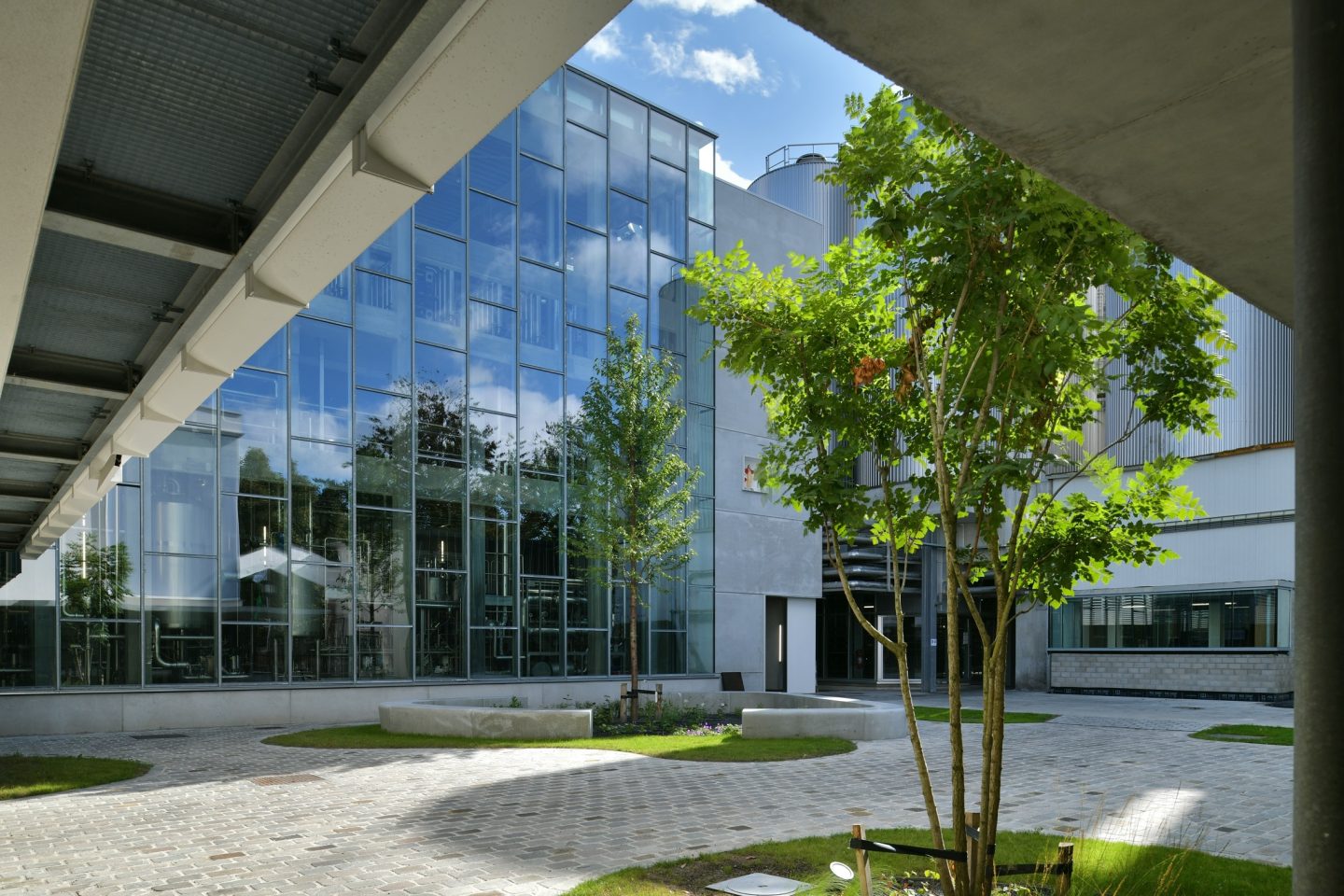Brewing sustainability
Our commitment to reducing carbon emissions in our biggest plant in Europe goes beyond a one-off effort. We have formalized our commitment to energy reduction through the Energy Policy Agreement scheme (EBO Vlaanderen). This agreement ensures that, each year, we identify and implement projects that make our breweries even more energy efficient. By staying true to our 'reduce' principle, we aim to continually optimize our energy consumption and make meaningful strides towards a more sustainable brewing process.
By focusing comprehensively on energy efficiency, we have achieved a remarkable 21% decrease in the energy required to brew one liter of beer compared to 2014. This achievement has been complemented by a strategic shift toward renewable energy sources, resulting in a 21% reduction in greenhouse gas (GHG) emissions per liter of beer brewed since 2014. While we have made great improvements in recent years, when expressed in absolute terms we still emitted the equivalent of 8,556 tons of carbon dioxide (market-based, scope 1 & 2), as calculated using the GHG protocol standards.
However, we understand that the purchasing of certificates from existing installations is not enough to drive substantial change. Therefore, we continue to push to increase the share of on-site renewable electricity generation.
At our site in Puurs-Sint-Amands, we already generate biogas from our wastewater through anaerobic digestion in our two anaerobic reactors. In 2022, we were able to replace 11% of our natural gas demand with biogas, and we intend to further increase this share in the future. That is why we have invested in a third anaerobic reactor that will be operational in 2023.
To further reduce our carbon emissions, especially for the production of heat, we are continuing to investigate the potential for electrifying our heat requirement using heat pumps or for using solar thermal applications in sunny areas where land is available.
